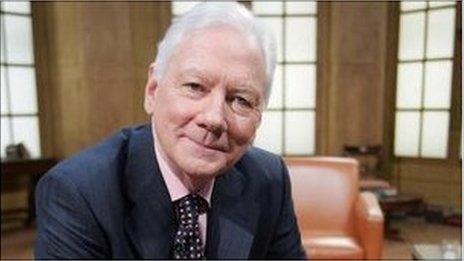Gay Byrne obituary: The leading Irish broadcaster of his era
- Published
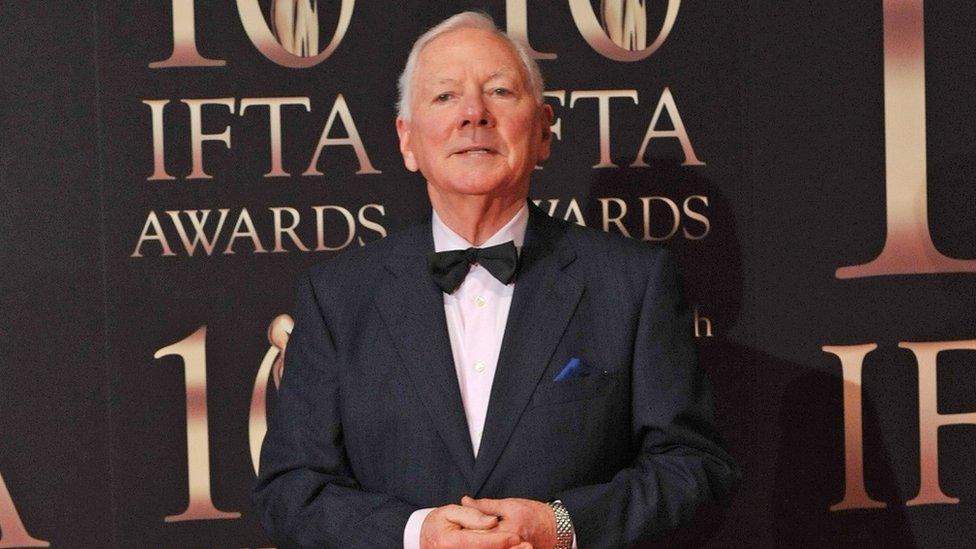
Gay Byrne, or Gaybo, as he was almost universally known, was the leading Irish broadcaster of his era.
As anchor of the Late Late Show, he steered the audience through the highs and lows of Irish life.
From Ballybunion to Buncrana, he was a familiar and controversial face on Irish screens every Friday night, presiding over the shifting moods of the Republic of Ireland.
A series of taboos were broken on his programme at a time when Ireland was still deeply Catholic and conservative.
From the journalist who spoke about her long-standing affair with the former taoiseach (Irish prime minister) Charles Haughey, to lesbian nuns to former Sinn Féin president Gerry Adams, his interviews shocked and influenced in equal measure.
Born on Dublin's north side in 1934, he began his television career at Granada Television in Manchester and became the first person to introduce The Beatles on screen.
He joined Irish national broadcaster, Radio Éireann in 1958 and was appointed as the first host of the television programme, the Late Late Show, in 1962.
Apart from an absence in 1964, Byrne presented the weekly television programme until 1999.
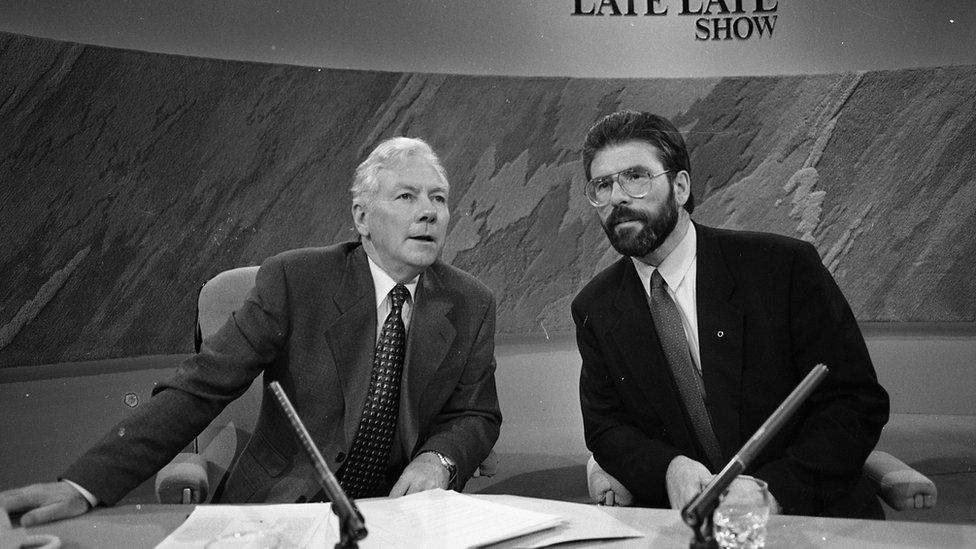
Gay Byrne in his famous interview with Gerry Adams
In the 1960s, Byrne, famous for his catchphrase "and there's one for everyone in the audience", was the talk of the country.
As well as giving out free gifts to the audience, the programme and its host were credited with influencing Irish attitudes towards many issues.
The show provided a platform for an unmarried mother to explain her position at a time when to be in such a situation was still deeply frowned upon.
As an interviewer, Byrne was very much his own man, he did not think twice about scolding one guest who appeared under the influence while on air.
On another occasion, he refused to shake the hand of former Sinn Féin president Gerry Adams.
His interview with the then Sinn Féin leader took place after the broadcasting ban imposed on the political party on Irish airwaves was lifted in 1994.
He opened his introduction into the interview with the words: "We have just been joined by the most controversial man on this island."
Another interview that courted controversy was one with the then Northern Ireland secretary, Peter Brooke, in 1992.
The senior politician was coaxed by the presenter into singing Oh My Darling Clementine.
His performance came on a day when eight Protestant building workers were killed and six badly injured in an IRA bomb attack at Teebane, a rural crossroads in County Tyrone.
Unionists were outraged and, shortly afterwards, the secretary of state resigned.

Late Late moments:
•American woman Annie Murphy: the mother of Bishop Eamonn Casey's son, tells her story
•NI Secretary Peter Brooke sings O My Darling Clementine within hours of an IRA bomb
•The Gerry Adams/Gay Byrne interview
•Irish journalist Terry Keane tells of her affair with former Taoiseach (Prime Minister) Charlie Haughey

It was not just politicians who had their feathers ruffled by Byrne, but priests too.
In 1966, in what became known as the Bishop and The Nightie scandal, Byrne asked a married man what colour of nightie his wife had worn on their honeymoon.
The man told the audience it was transparent and his wife said she had not worn any.
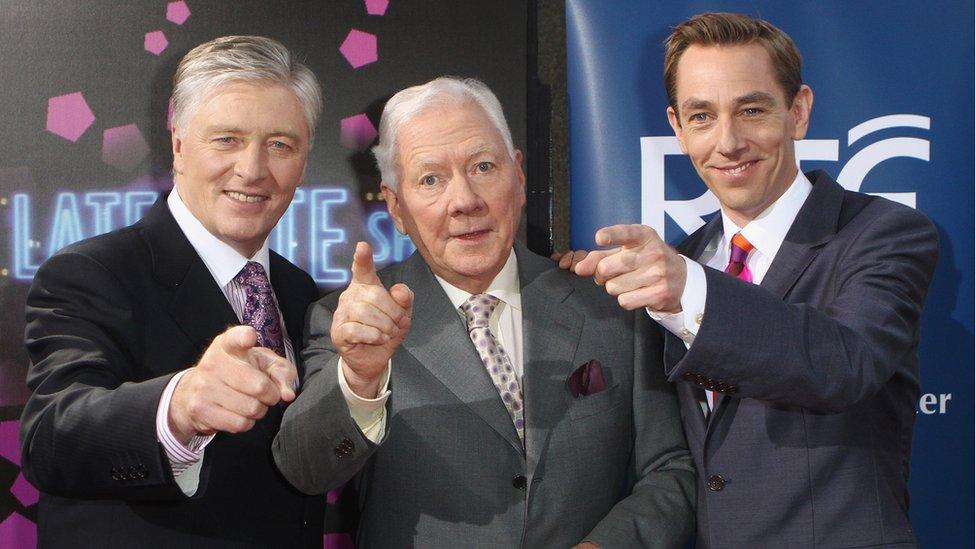
Late Late Show hosts Pat Kenny, Gay Byrne and Ryan Tubridy celebrating 50 years of the show in 2012
Bishop of Clonfert, Dr Thomas Ryan, protested vigorously at the content of the Late Late Show.
It caused national outrage and led some to declare the show was "filthy dirty" and "smut".
In 1993, his interview with American woman, Annie Murphy, who had a child with Bishop of Galway Eamonn Casey, ended very frostily.
Byrne remarked that Eamonn Casey's son would be fine, if he was "half the man his father" was.
In response, Ms Murphy icily retorted: "I'm not so bad either," before she got up and walked off set.
It was not just Ms Murphy who had been annoyed.
Years later, her son said he had wanted to "deck" Byrne for the way he had treated his mother.
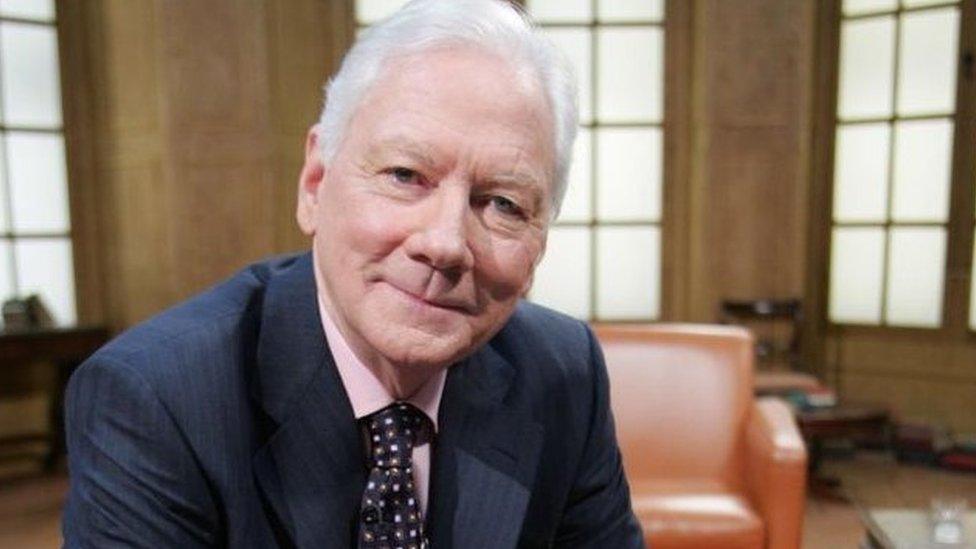
In more recent years Gaybo had a much lower profile
Another notable affair of the heart to be shared with the Irish public was an interview with journalist Terry Keane in 1999.
She spoke to Byrne about her long-standing relationship with former Taoiseach (Irish prime minister) Charles Haughey. He went into hiding from the media as a result.
Given the subject matter of some of his interviews, it is perhaps not surprising that he was credited by the conservative Fine Gael politician, Oliver J Flanagan, as the man who "brought sex to Ireland".
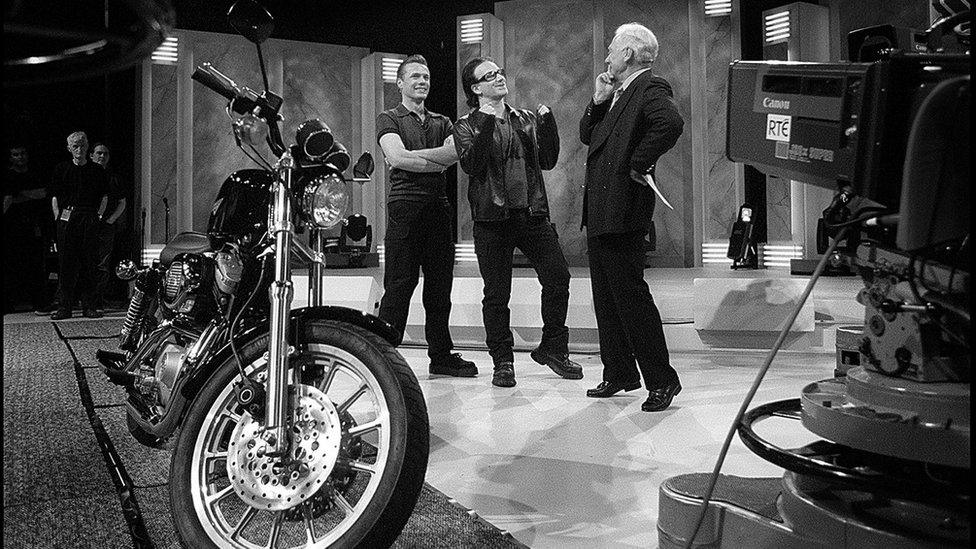
On his last Late Late Show Larry Mullen and Bono from U2 gave Gay a Harley Davidson
After bidding his final "goodnight" to viewers in May 1999 after 37 years on the show, Byrne said he planned to "do nothing" for six months.
His employers, RTÉ, said after his departure that the door would "always be open for a return for Gaybo".
In more recent years he has had a much lower profile, but still presented radio and television programmes and was the chairman of Ireland's Road Safety Authority.
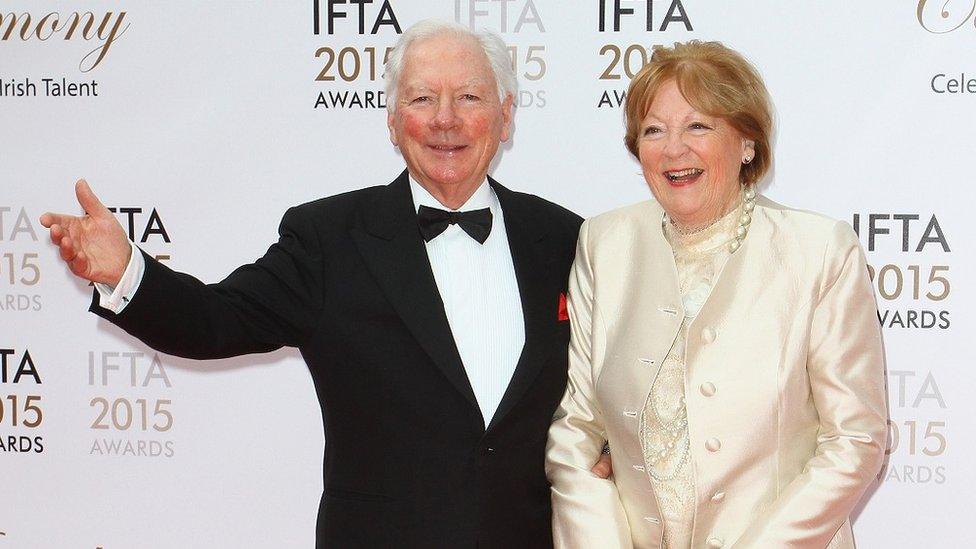
Gay and his wife Kathleen Watkins pictured in 2015
He briefly flirted with the idea of running for the Irish presidency before deciding against it.
Despite his considerable success, he faced financial problems as his pension was wiped out in the Irish recession.
A dispute between a financial fund and his family partnership was settled in court last year.
Byrne was diagnosed with prostate cancer in 2016 and had been receiving treatment.
He was married to harpist and broadcaster, Kathleen Watkins, with whom he had two children.
- Published1 June 2012
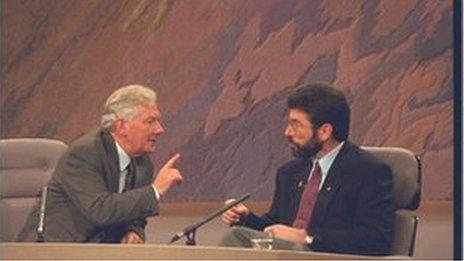
- Published13 August 2011
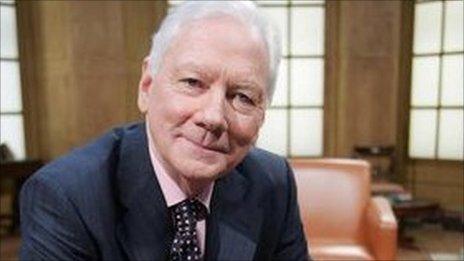
- Published11 August 2011
